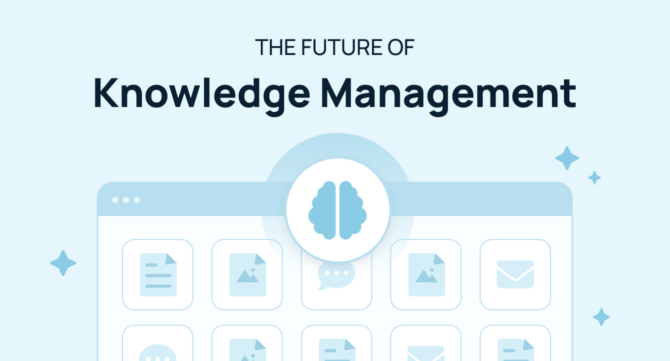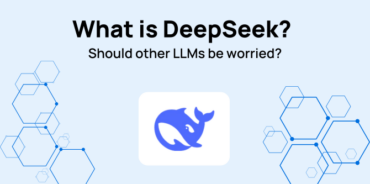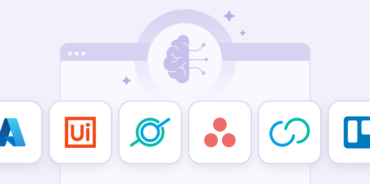2025 is here, and you may be wondering:
What changes will we see in knowledge management this year?
We have already seen some big changes in 2024 thanks to artificial intelligence (AI), machine learning, and cloud technologies, which have affected how organizations manage their knowledge assets.
Knowledge management systems continue to change and evolve into intelligent ecosystems that streamline how employees access, share, and utilize information.
In this article, we’ll explore insights from tech leaders on what the future holds for knowledge management (KM) and how organizations can maintain a competitive advantage.
Future trends of knowledge management
- Predictive analytics shaping knowledge management
- AI-driven, real-time knowledge accessibility
- Balancing data privacy with knowledge sharing
- AI and cloud revolutionizing knowledge discovery
- Centralized AI-powered knowledge systems
- Tech advances driving collaborative knowledge sharing
- Augmented reality enhances real-time knowledge delivery
- The rise of GPTs in knowledge management tools
- Better knowledge capture processes to optimize for AI
1. Predictive analytics
One emerging knowledge management trend is the integration of predictive analytics to enhance how organizations handle knowledge assets.
Abid Salahi, CEO of FinlyWealth, envisions AI-powered systems that streamline information processing and make tacit knowledge—the hard-to-capture, intuitive know-how—more accessible across the workforce.
He explains, “Predictive analytics will tailor learning and development initiatives and democratize access to knowledge, aligning with the millennial ‘on-the-go’ lifestyle. The future of knowledge management systems will be about creating an agile, intuitive knowledge base.”
2. AI-driven, real-time knowledge accessibility
The future of knowledge management is moving toward real-time, AI-driven accessibility. As Bassem Mostafa, founder of Globemonitor Market Research Agency, points out, “The challenge isn’t just about storing knowledge—it’s about making it easily accessible and actionable in real-time.”
AI systems like GoSearch will play a pivotal role in automating how information is categorized, tagged, and surfaced for users, allowing organizations to optimize the sharing of organizational knowledge.
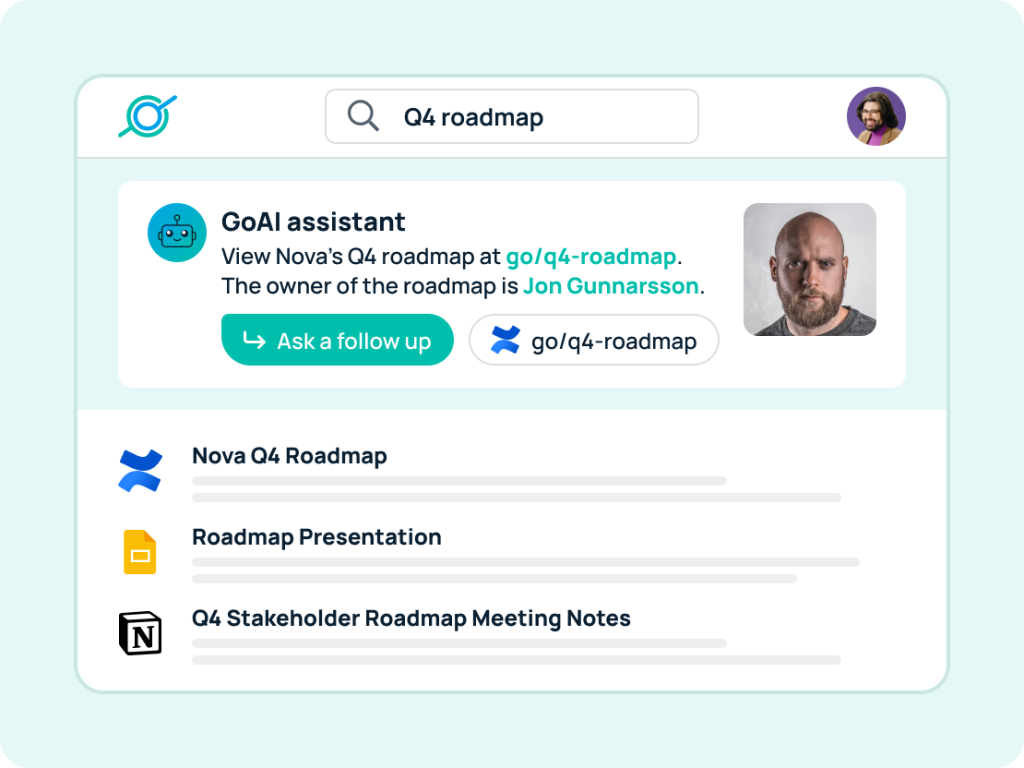
In the near future, collaborative platforms like Slack, Microsoft Teams, and Notion will further integrate with AI and machine learning technologies to become comprehensive ecosystems for real-time knowledge management.
3. Balancing data privacy with knowledge sharing
As organizations prioritize knowledge management, one of the future challenges will be balancing data privacy with seamless knowledge sharing.
The increasing importance of data security and privacy regulations, as noted by Alari Aho, CEO of Toggl, will shape KM strategies moving forward. He emphasizes that knowledge management systems must become more robust in managing access rights and encryption to ensure that knowledge assets are accessible to authorized users while maintaining stringent security protocols.
To achieve this balance, advancements in blockchain and other secure technologies will ensure that sensitive organizational knowledge is protected without compromising the ease of sharing critical information.
4. AI and cloud revolutionizing knowledge discovery
Clooney Wang, CEO of TrackingMore, believes that AI and cloud technologies will revolutionize the future of knowledge management. He envisions knowledge management solutions evolving into “Knowledge-as-a-Service” (KaaS), where real-time access to information becomes the norm.
Wang explains, “AI-enhanced knowledge discovery will enable intelligent, context-aware search functionalities, providing personalized recommendations based on roles, tasks, and behaviors.”
This shift will be essential as businesses continue to adopt remote and hybrid work models. Cloud-based KM systems allow employees to access knowledge assets from any location, enabling greater scalability and flexibility.
5. Centralized AI-powered knowledge systems
Mia Naumoska, CMO of Internxt, highlights the role of centralized, AI-powered knowledge management systems in the workplace. She suggests that the future of KM systems will be defined by smart search capabilities, automated tagging, and personalized content recommendations.
These knowledge management solutions will not only enhance how employees find and use information but will also contribute to a more intuitive and efficient knowledge-sharing culture.
AI’s ability to understand search intent and personalize recommendations will allow organizations to move beyond static knowledge bases to dynamic, ever-evolving systems like GoSearch (AI-powered enterprise search). This will be a critical aspect of future KM practices, especially in environments that rely on continuous learning and collaboration.
6. Tech advances driving collaborative knowledge sharing
The rapid development of AI and other advanced technologies will also reshape how organizations foster collaboration and share tacit knowledge.
Shehar Yar, CEO of Software House, predicts that AI-driven tools will personalize and contextualize access to knowledge, reducing the time spent searching for resources. “As teams become more dispersed due to remote work, the focus will shift toward digital platforms that facilitate collaboration and communication across geographies,” he adds.
7. Augmented reality enhances real-time knowledge delivery
Looking further into the future, Alex LaDouceur, co-founder of Webineering, sees the integration of augmented reality (AR) and AI as a game-changer for real-time knowledge delivery.
“AR will combine with AI to create context-aware systems that help workers navigate complex information environments in real-time,” says LaDouceur. He envisions a future where knowledge management solutions overlay digital information onto the real world, making information retrieval faster and more intuitive.
For example, AR could provide real-time data on a machine’s maintenance history or performance analytics, helping employees make informed decisions in the moment.
8. The rise of GPTs in knowledge management tools
GPTs (advanced AI models) are transforming how organizations handle knowledge management by providing highly personalized, role-specific solutions to meet various departmental needs.
Jorge Zamora, CEO and Founder of GoSearch, predicts, “Gen AI tools will eventually provide every department with specialized AI assistants. There’s going to be GPTs for everything.” This means that in the future, HR, marketing, IT, and other departments will be equipped with customized AI-powered tools that cater to their specific knowledge management requirements.
Tools like GoSearch already offer a custom GPT feature where departments can train AI on their specific resources and documentation. These GPTs streamline access to knowledge assets and assist with automating workflows.
This technological advancement will likely revolutionize KM systems by making them more intuitive, adaptive, and capable of handling specialized tasks across various departments.
The rise of GPTs also signals a shift towards organized knowledge management that goes beyond static information repositories. These tools will enable employees to share their knowledge more efficiently by integrating generative AI with tacit knowledge.
9. Better knowledge capture processes to optimize for AI
As more and more companies use AI, they may need to update their knowledge capture strategies to accommodate this new technology.
Jeslyn Kim, Knowledge Base Manager at Notion, thinks this will be a big trend. Kim shares, “In addition to asking ourselves the best way to organize knowledge for manual knowledge retrieval, we also need to ask ourselves how to set knowledge up in a way that makes it easy for AI to use.”
Update your knowledge management strategy
Want to maintain a competitive edge in 2025?
It may be time for your organization to revamp its knowledge management strategy with new technology.
GoSearch takes team knowledge management to a new level of efficiency with AI generated answers and information discovery.
Schedule a demo to see how it can help your team’s productivity.
Search across all your apps for instant AI answers with GoSearch
Schedule a demo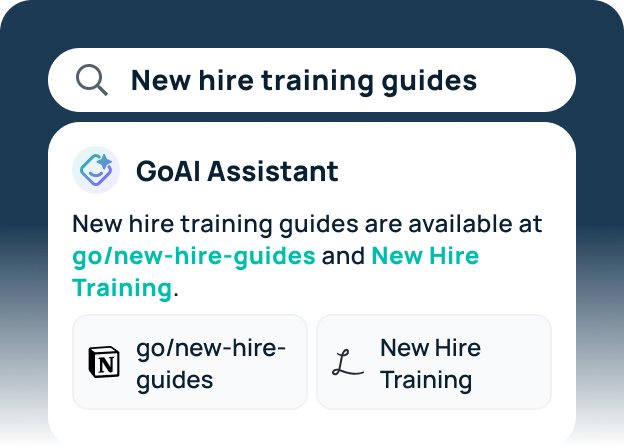
FAQs
- What is the future of knowledge management?
The future of knowledge management lies in AI-driven systems that streamline knowledge sharing, real-time collaboration, and personalized insights, enabling organizations to leverage their knowledge assets more effectively.
- What are the future challenges of knowledge management?
Challenges include balancing data security with accessibility, capturing tacit knowledge, and ensuring that knowledge management systems are agile and user-friendly.
- How will AI and machine learning impact knowledge management?
AI and machine learning will automate knowledge capture, improve search capabilities, and deliver personalized knowledge recommendations based on user behavior.
- What trends are shaping the future of knowledge management?
Key trends include the integration of predictive analytics, cloud-based KM systems, and AI-powered tools for real-time knowledge sharing and discovery.
